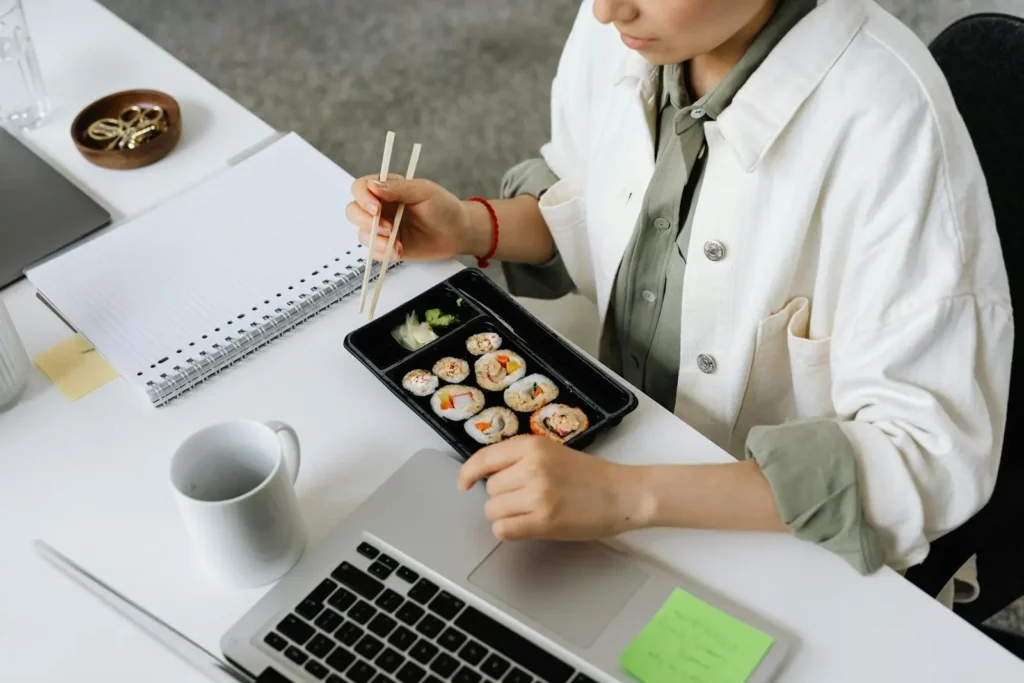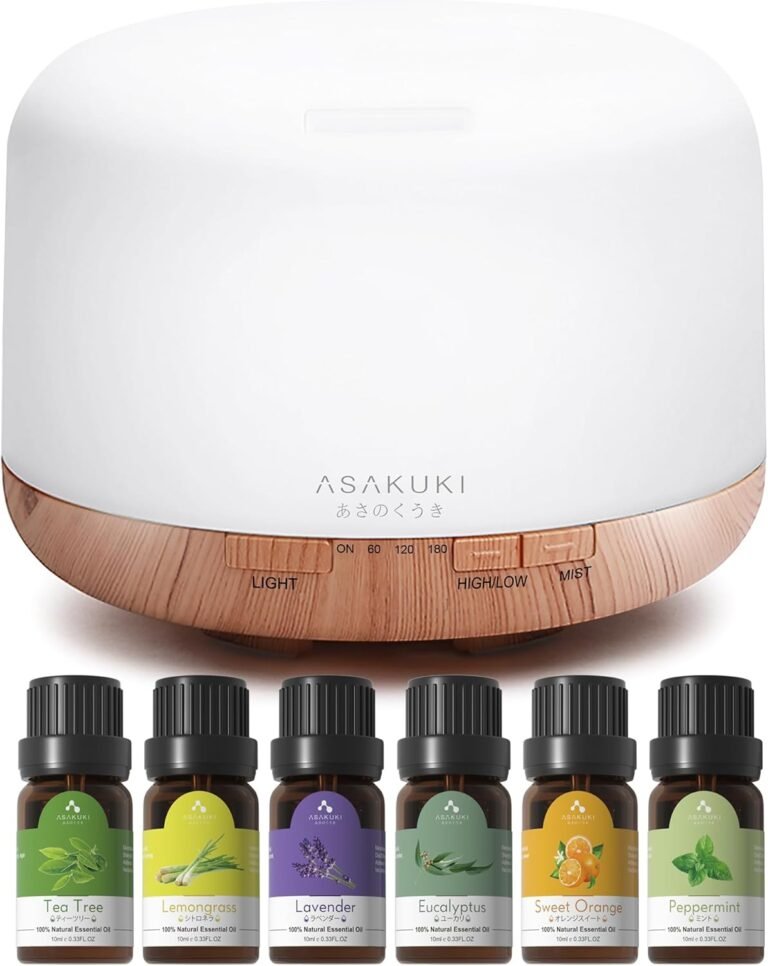Many people want to feel better and stay healthy as they age. Your body has built-in ways to heal itself, keep weight steady, and fight off illness. A few easy habits can help these natural systems work well. The advice here takes lessons from Japan, where people are known for living long, healthy lives.
Read below for clear, practical tips based on solid science. Leading Japanese experts discovered how small changes—like eating more plants and steering clear of processed foods—boost Plant-Powered Wellness.

For educational use only. Always ask your doctor before trying new food or lifestyle changes, especially if you have health problems.
Why Healthy Cells Matter Most
Staying healthy starts at the smallest level—your cells. When cells repair and renew themselves, you feel younger, recover faster, and lower your risk for disease. Japanese scientists, like Nobel winner Dr. Yoshinori Ohsumi, found that a process called autophagy is the key to this repair. As Dr. Ohsumi said, “Without autophagy, our cells cannot survive”.
Other top doctors—Dr. Takayuki Teruya, Dr. Shigeaki Hinohara, Dr. Yumi Ishihara, and Dr. Hiromi Shinya—recommend:
- Regular fasting
- Slowing down at meals
- Eating mostly plants
- Avoiding foods with lots of chemicals
These habits are simple. They help your body clean itself and stay strong.
What Is Autophagy?
Autophagy means “self-cleaning” for your cells. They break down parts that are old or broken and reuse them. This keeps you fit and helps you fight off sickness. Dr. Ohsumi’s work shows that autophagy is stronger during fasting and some types of stress. It’s your body’s way to repair damage and stay at a healthy weight. Learn more about the Nobel Prize.
Autophagy links to:
- Getting older
- Fighting cancer
- Brain protection
- Your immune system
This is the heart of Plant Powered Wellness. Supporting your cells means supporting your whole body. See more on Pro-Aging: Redefining Beauty, Success, and Happiness.
Daily Habits from Japan for Better Cell Health
Building autophagy into life does not take significant changes. The best research supports three routines.
1. Intermittent Fasting: Eat within a Set Time
Intermittent fasting means eating all your food within a set number of hours daily. In Japan, it’s common for older generations to have long breaks between meals or skip one meal, similar to modern fasting.
- Try not to eat for 12 to 16 hours at night
- Drink water or herbal tea during fasting time
- Give your body a break to repair itself
Dr. Takayuki Teruya’s work shows that fasting can change your blood chemistry. “Fasting turns on new pathways that help cells repair and may slow aging”.
Fasting helps your body:
- Send out new repair molecules
- Switch from burning sugar to burning fat
- Handle stress and lower swelling
This is a key part of Plant Powered Wellness.
How to get started: Begin with a 12-hour fast at night. Eat at 7 PM, have your next meal after 7 AM. Drink only water or herbal teas between. Make changes slowly. Always talk to your doctor before you change your eating times. See more about Intermittent Fasting
2. Hara Hachi Bu: Stop Eating Before You’re Full

“Hara hachi bu” is a saying from Okinawa. It means stopping your meal once you are about 80% full. This helps you avoid overeating and keeps your digestion on track.
- Eat slowly and pay attention to how you feel
- Use smaller plates and bowls
- Put your fork down between bites
Stopping before you’re stuffed helps control blood sugar and balance your meals. A mild calorie reduction is connected to living longer and getting sick less often. Researchers find that “hara hachi bu” turns on autophagy, as fewer calories mean less stress on your cells and more time for repair.
Okinawans have been famous for living for the past 100 years. Check out more about Blue Zones here.
Dr. Shigeaki Hinohara, who lived to 105, backed these habits. He stayed active and curious all his life. His advice: “Eat until you’re 80% full, move daily, and avoid extra sugar”.
He also suggested:
- Take the stairs often
- Walk every day
- Keep learning and laughing a lot
To try hara hachi bu: Slow down your eating. Aim to feel satisfied but not heavy. Eat without using a phone or watching TV so you notice when you’re full.
3. Eating Patterns to Boost Autophagy
Modified Fasting with Plant Foods
Dr. Yumi Ishihara suggests a simple change to support fasting:
- Begin with fresh juice (carrot or apple)
- Skip lunch, but drink black tea with black sugar and ginger
- Eat one main meal filled with whole foods
This schedule keeps your fasting window going, which helps the body repair. As Dr. Ishihara shares, “Most people overeat. Eating less can help you stay healthy.” See more at Ishihara Clinic.
Juicing in the Morning
Starting your day with juice from fresh fruits or veggies is gentle on your stomach. Carrot juice provides vitamin A and supports skin health, while apple juice has antioxidants that help your gut. Start with half a glass. Wait 10 to 20 minutes before having solid food. A teaspoon of olive oil or a few nuts can slow the rise of sugar in your blood.
Black Tea with Black Sugar and Ginger
Let’s look at it this way: black tea is packed with antioxidants, and black sugar (not white sugar) has extra minerals. Ginger is good for calming your stomach. This cozy drink can wake you up without a lot of calories.
One Bigger Plant-Focused Meal
Stick to one or two solid meals a day. Fill your plate with foods like:
- Fresh vegetables and leafy greens
- Seaweed and fermented foods
- Fish or beans, like tofu and soy products
- Whole grains such as brown rice and barley
This matches what many Japanese families have eaten for generations. See more ideas in our Plant-Based Beginners Guide.

Gut Health and Enzyme Foods
Dr. Hiromi Shinya valued foods rich in enzymes and plants and low in meat. Eating raw veggies, fruit, and fermented foods can ease swelling and help your gut work well. Read about Dr. Shinya’s method.
He also recommended a “little fast”—a 16-hour gap from your evening meal until late the next morning. For example, dine early, skip breakfast, and eat again before noon. This lets your gut rest and keeps your system balanced.
Dr. Shinya advised starting each morning with two glasses of water. This will prepare your body for the day and help move waste out.
Japanese Green Tea
Green tea contains antioxidants called catechins, which protect cells. Drinking green tea throughout the day supports cell cleaning and general health.
Foods to Limit
All the experts above agree: processed foods get in the way of cell repair. They spike your blood sugar and can cause swelling. Try to avoid:
- Sweet snacks and soft drinks
- Foods made with white flour
- Added sugars
- Processed meats
- Artificial additives
Choosing more whole foods gives your body a real chance to repair itself.
Want more plant-based tips and recipes? Visit our Plant Powered Wellness Ideas.
Checklist for a Plant-Powered Life
Want to make a change? Here are some easy steps:
- Pick a 12- or 16-hour break from food each night
- Practice mindful eating and stop before you’re full
- Fill meals with veggies, grains, and fermented foods
- Begin the day with fresh juice or herbal tea
- Avoid foods high in sugar or chemicals
Small steps, done every day, matter more than one considerable effort. The Japanese way shows that simple routines keep you well for life.
Explore more:
Beginner’s Guide to Plant-Based Eating
Natural Herbal Remedies for Immunity
How to Make Japanese Pickled Vegetables

Science You Can Trust
Japanese doctors and scientists built their fame on research and decades of patient care:
- Dr. Yoshinori Ohsumi: Nobel Prize for work on cell repair. More here
- Dr. Yumi Ishihara: Fasting routines for better metabolism, Ishihara Clinic
- Dr. Hiromi Shinya: Focused on gut health and enzymes. Learn more
Wrapping this Up…!
A long and healthy life starts with simple habits. Let your body rest, eat carefully, and consume plant-based foods. Skip processed ingredients as much as possible. Small daily choices, rooted in tradition and research, build true wellness.
Ready for more tips and food ideas? Explore the Plant Powered Wellness library. You can also join our YouTube Community for more holistic plant-powered wellness tips.
Always talk to your doctor before making any major changes to your diet or lifestyle, especially if you have a health issue.





